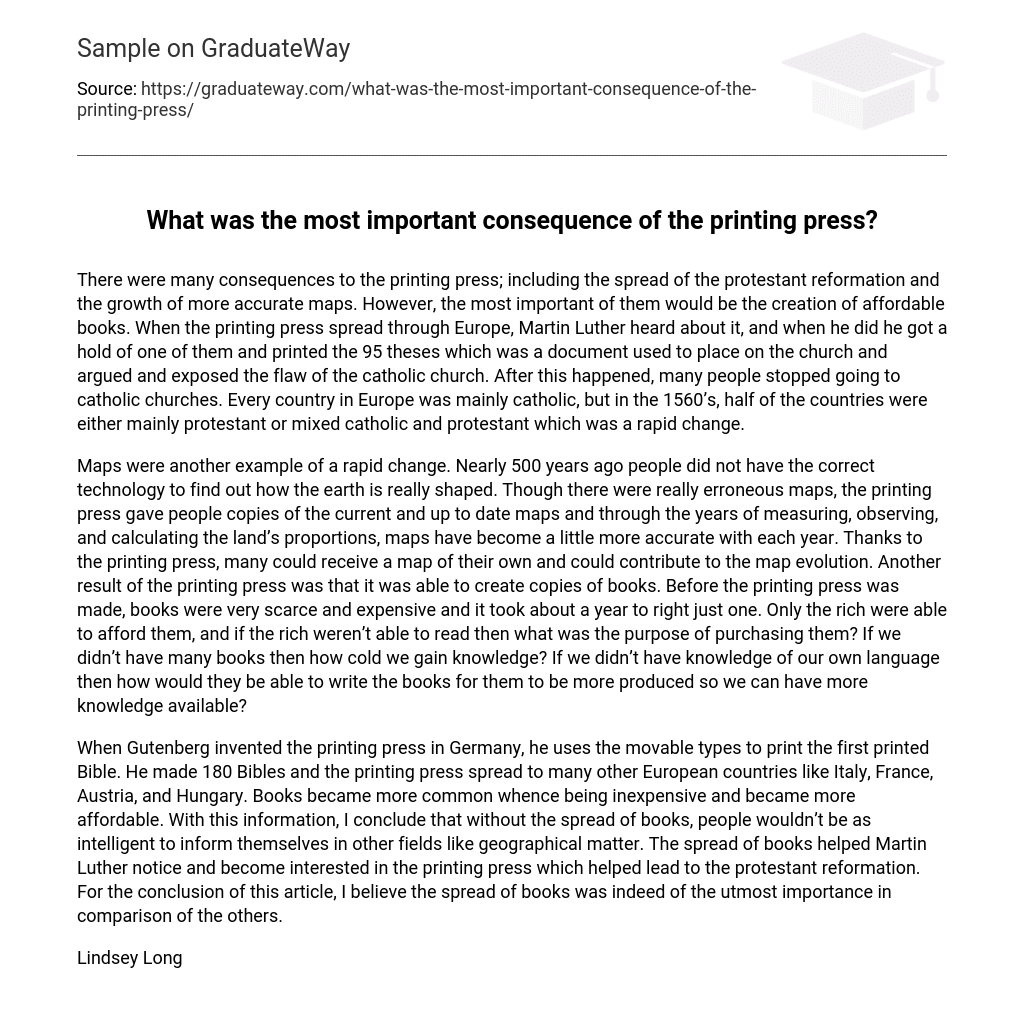There were many consequences to the printing press; including the spread of the protestant reformation and the growth of more accurate maps. However, the most important of them would be the creation of affordable books. When the printing press spread through Europe, Martin Luther heard about it, and when he did he got a hold of one of them and printed the 95 theses which was a document used to place on the church and argued and exposed the flaw of the catholic church. After this happened, many people stopped going to catholic churches. Every country in Europe was mainly catholic, but in the 1560’s, half of the countries were either mainly protestant or mixed catholic and protestant which was a rapid change.
Maps were another example of a rapid change. Nearly 500 years ago people did not have the correct technology to find out how the earth is really shaped. Though there were really erroneous maps, the printing press gave people copies of the current and up to date maps and through the years of measuring, observing, and calculating the land’s proportions, maps have become a little more accurate with each year. Thanks to the printing press, many could receive a map of their own and could contribute to the map evolution. Another result of the printing press was that it was able to create copies of books. Before the printing press was made, books were very scarce and expensive and it took about a year to right just one. Only the rich were able to afford them, and if the rich weren’t able to read then what was the purpose of purchasing them? If we didn’t have many books then how cold we gain knowledge? If we didn’t have knowledge of our own language then how would they be able to write the books for them to be more produced so we can have more knowledge available?
When Gutenberg invented the printing press in Germany, he uses the movable types to print the first printed Bible. He made 180 Bibles and the printing press spread to many other European countries like Italy, France, Austria, and Hungary. Books became more common whence being inexpensive and became more affordable. With this information, I conclude that without the spread of books, people wouldn’t be as intelligent to inform themselves in other fields like geographical matter. The spread of books helped Martin Luther notice and become interested in the printing press which helped lead to the protestant reformation. For the conclusion of this article, I believe the spread of books was indeed of the utmost importance in comparison of the others.
Lindsey Long





